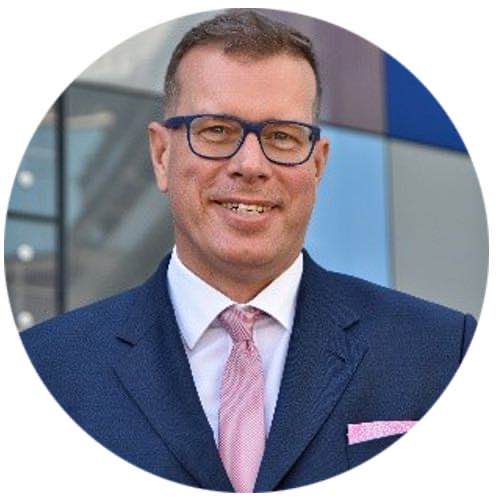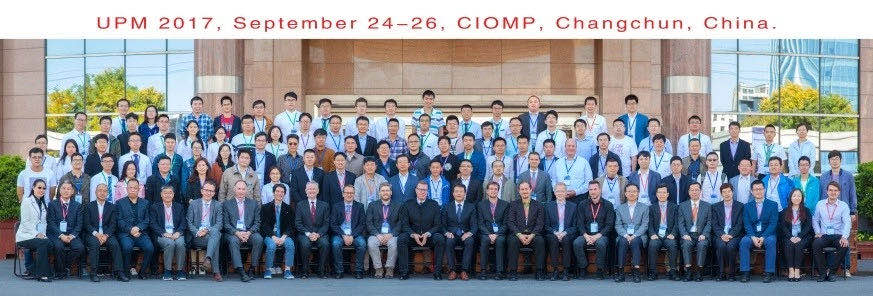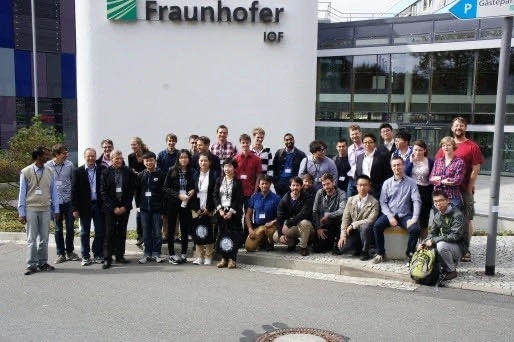Author: WANG Hui |

Prof. Andreas Tünnermann
Prof. Andreas Tünnermann, Director of the Fraunhofer Institute for Applied Optics and Precision Engineering and Chair for Applied Physics at Friedrich-Schiller-University Jena, enjoys an excellent reputation in the laser physics community. He leads one of the most creative and productive laser research groups in the world. His research interests include fundamental principles as well as sophisticated technical aspects and applications associated with the tailoring of Light. Prof. Tünnermann’s work yielded a variety of developments in laser technology and has found many advanced applications in basic science and industry. He is a sought-after expert in the optics and photonics industry, member of the supervisory boards of many listed companies and founder and member of the board of directors of the industry driven cluster OptoNet Jena, one of the most dynamic regional optics clusters in Europe. Today, OptoNet represents companies with more than 14,000 employees and a total turnover of 3.6 billion euros around the city of Jena – prominent partners include companies such as Zeiss, Jenoptik and Schott. Major laser companies have adopted his concepts to develop advanced solid-state lasers. He is also known for his pioneering work in utilizing high power femtosecond lasers for material processing. This blend of experience and knowledge has attracted considerable attention and manifests itself in more than 650 peer-reviewed publications in reputable journals, in addition to more than 250 invited talks including plenary talks and tutorials at prestigious national and international conferences (h-index: 78).
Light special correspondent: You have published 7 papers[1],[2],[3],[4],[5],[6],[7] in the journal LSA with a total of 410 citations. The top cited article【Ref.1】 is the one you published in the LSA in its launching year of 2012, which was cited 207 times. It’s very impressive. Could you please tell us what is your reason for choosing the LSA to publish your papers? And particularly in 2012, when it was just launched and practically unknown.
Prof. Tünnermann: The photonics community realized in the beginning of the new century that there was a lack of a journal that summarizes applied research results from their specialist area. From my point of view, the launching of the new journal Light: Science & Applications was a consistent approach to overcome this deficit. For me personally it was therefore important to support the initiative to establish a new journal by submitting high-quality articles from the start.

CIOMP Vice President Prof. ZHANG Xuejun awarding Prof. Tünnermann the Light: Science & Applications Certificate for Outstanding Paper
Light special correspondent: You are a world-famous scientist in ultrafast laser and laser processing who have received many awards for your research achievements. Could you please tell us what do you think of the current situation as well as the future development of this field? Germany is a world leader of laser technology and Laser World of Photonics in Munich and Shanghai is a good brand for the global laser community. In your opinion, why is Germany so advanced in laser technology?
Prof. Tünnermann: Ultrashort pulse lasers are an indispensable tool in industrial production today. The laser industry in Germany in particular has laid important foundations for this. On the one hand, basic research programs created a fundamental understanding of the interaction between laser and matter, while new laser geometries, such as the disk laser or the fiber laser, were developed at the same time. The key to the success of the German laser industry, however, lies in the close strategic cooperation between business and science along the entire value chain.
Light special correspondent: You are the founder of the industry-driven cluster OptoNet Jena around the city of Jena. It is one of the most dynamic regional optics clusters in Europe with more than 14,000 employees and a total turn-over of 3.6 billion Euros. With prominent partners including Zeiss, Jenoptik and Schott, it's really a good example of how research can be combined with industry successfully. I wonder what motivated you to set up this cluster and how are you able to run it so successfully.
Prof. Tünnermann: More than twenty years ago, colleagues from business and science observed with great concern that the transfer of knowledge from universities and non-university institutions to business was increasingly deteriorating. There was also a lack of qualified specialists. This jeopardized the industry‘s ability to innovate.
A group of experts –of which I was a member - founded the OptoNet cluster with the following aims:
- Developming a comprehensive roadmap for the photonics industry in Jena
- Securing the training of skilled workers
- And promoting the networking of business and science.
In the years that followed, we succeeded in increasing the innovative strength of the member companies and thus promoting growth through numerous coordinated individual measures.
Light special correspondent: As a mentor to young scientists, you have established an exemplary system to promote independent scientific personal development. What would be your advice for young scientists in their early research career?
Prof. Tünnermann: Excellence in science is based on original research and on the one hand on cooperation, on the other hand on competition. It is therefore important for young scientists to cooperate and to compete with others to develop and implement their own original ideas.
Light special correspondent: To do research sometimes means you have to work with other researchers, and take part in team work. As a director of such a famous institute as the IOF and a member of the board of many organizations, you are a proven leader. So what do you think makes a good leader?
Prof. Tünnermann: My personal guiding principle in leadership is: "challenge and encourage". However, basic requirement for building up a successful institute is the establishment of a suitable culture - a mission - that promotes inventions and collaborations. We have defined the following mission statements for our research: Excellence in science! Cross border! Create, not follow! Change the game! Make mistakes! Culture trumps strategy!
Light special correspondent: You have cooperated with CIOMP in many ways, including a joint education program, the Ultra Precision Manufacturing Workshop (UPM), joint research projects and you are now also an Executive Editor-in-Chief of the journal LSA. Could you tell us why did you decide to work with the CIOMP? And what do you think of this cooperation?
Prof. Tünnermann: Cooperation is an essential building block for establishing and maintaining excellence in research - this creates new knowledge and ultimately forms the basis for innovation. CIOMP has original competencies that complement our own competencies. Our cooperation creates added value for both partners.

International Workshop on Ultra Precision Manufacturing of Aspheres and Freeforms, co-organized by IOF and CIOMP, was held successfully in Changchun in 2017.

IOF-CIOMP-University of Toronto Joint Summer School held successfully in Jena

Prof. Tünnermann visiting the CIOMP pavilion at the LASER-World of Photonics in Munich
Article link: https://mp.weixin.qq.com/s/1b63YBi08GD8GUHo8b6HTg
